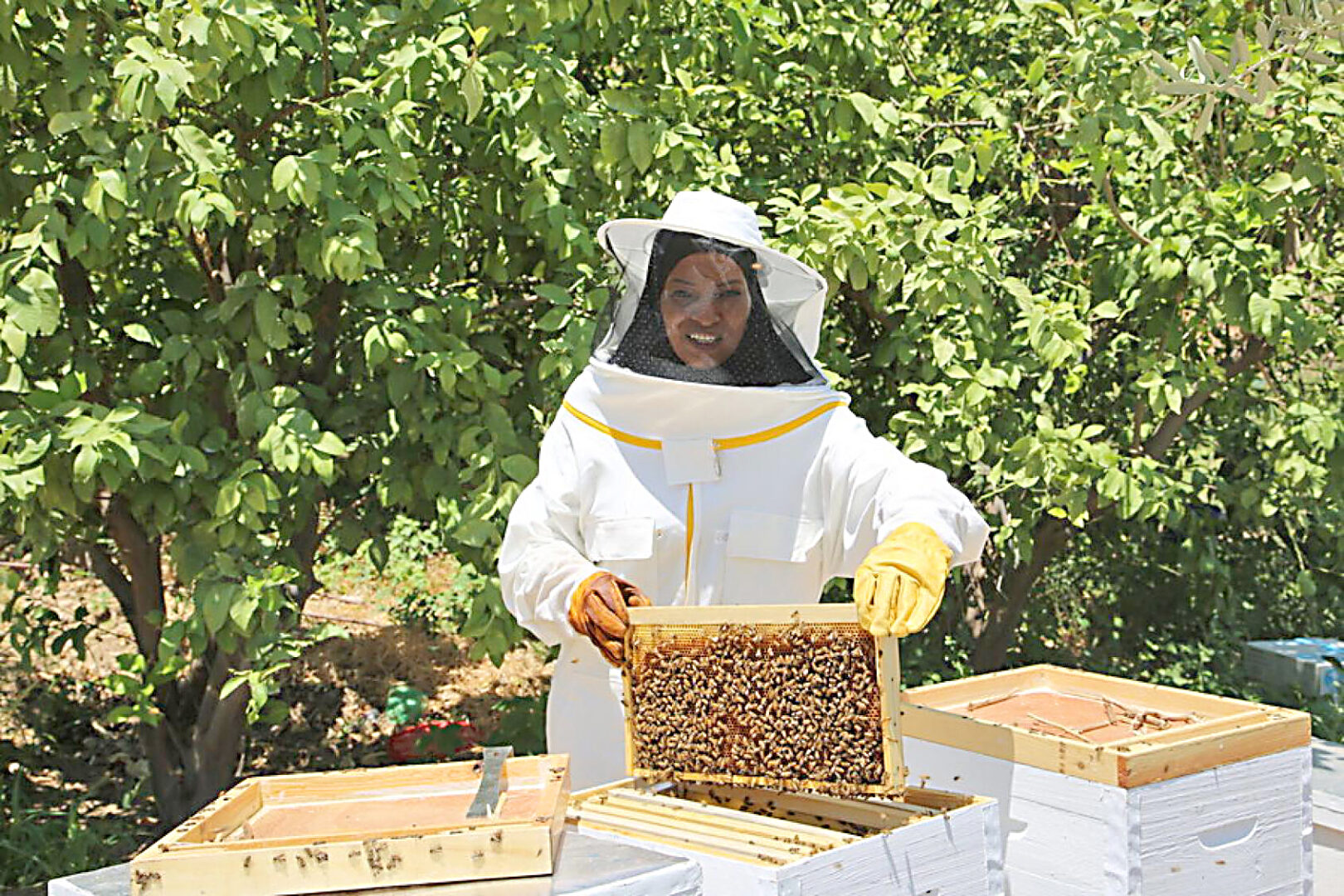In the small town of Er-rich, nestled in the plains of Morocco’s Atlas Mountains, a group of local men and women settled into a packed room as an Food and Agriculture Organization beekeeping training got underway on one afternoon in March.
The room was full of excitement and anticipation; the beekeepers of Er-rich were eager to learn and do whatever they could to save the regions’ bees from extinction.
Through the course of the training, the beekeepers learnt about the Saharan yellow bee, a particularly resilient and non-aggressive species that is well-adapted to the local climatic and breeding conditions of the Atlas Mountains.

“Don’t be afraid,” the instructor, Mohamed Aboulal, reassured the beekeepers. “This is the gentlest breed. That’s what makes its neighbor to the north, the black bee, ‘yellow’ with jealousy,” he said with a smile. “It’s not only beautiful in its long yellow dress, it’s also docile, produces great honey and is a better forager, since it can travel up to eight kilometers compared to only three kilometers for the ordinary bee.”
Despite these qualities, the Saharan yellow bee is under threat of extinction due to a combination of successive droughts in the region, the knock-on effects of pest control and the impact of other breeds of bee being introduced to the area.

Learning how to protect the Saharan yellow bee was of critical importance for this community of beekeepers in Er-rich, many of whom relied on the bees as a key part of their livelihoods.
They were eager to learn everything they could from Mohamed during the training, asking him many questions, including the best methods for producing more queens to learning the techniques for artificial insemination.
Passion from childhood
Mohamed, the instructor who led the FAO bee training course in Er-rich, dates his passion for bees back to when he was a young boy, and his father allowed him and his siblings taste honey straight from the wooden hives.
Today, as the resident of the regional Chifae Beekeeping Cooperative and a national beekeeping association, Mohamed spends much of his time providing training courses and helping to build greater knowledge and understanding of the Saharan yellow bee.
Mohamed is a regular visitor at the national renowned beekeeping center, which holds many training courses in how to protect and preserve important species of bees.
Together with the support of Government of Morocco and other partners, FAO has established a new technical beekeeping center, which, alongside the national center works to safeguard the Saharan Yellow Bee, improve bee keeping skills and help multiply and inseminate more queen bees.
Safeguarding the Saharan yellow bee plays an important role in protecting local agro-biodiversity, improving the incomes of smallholders and providing employment for women and youth.
